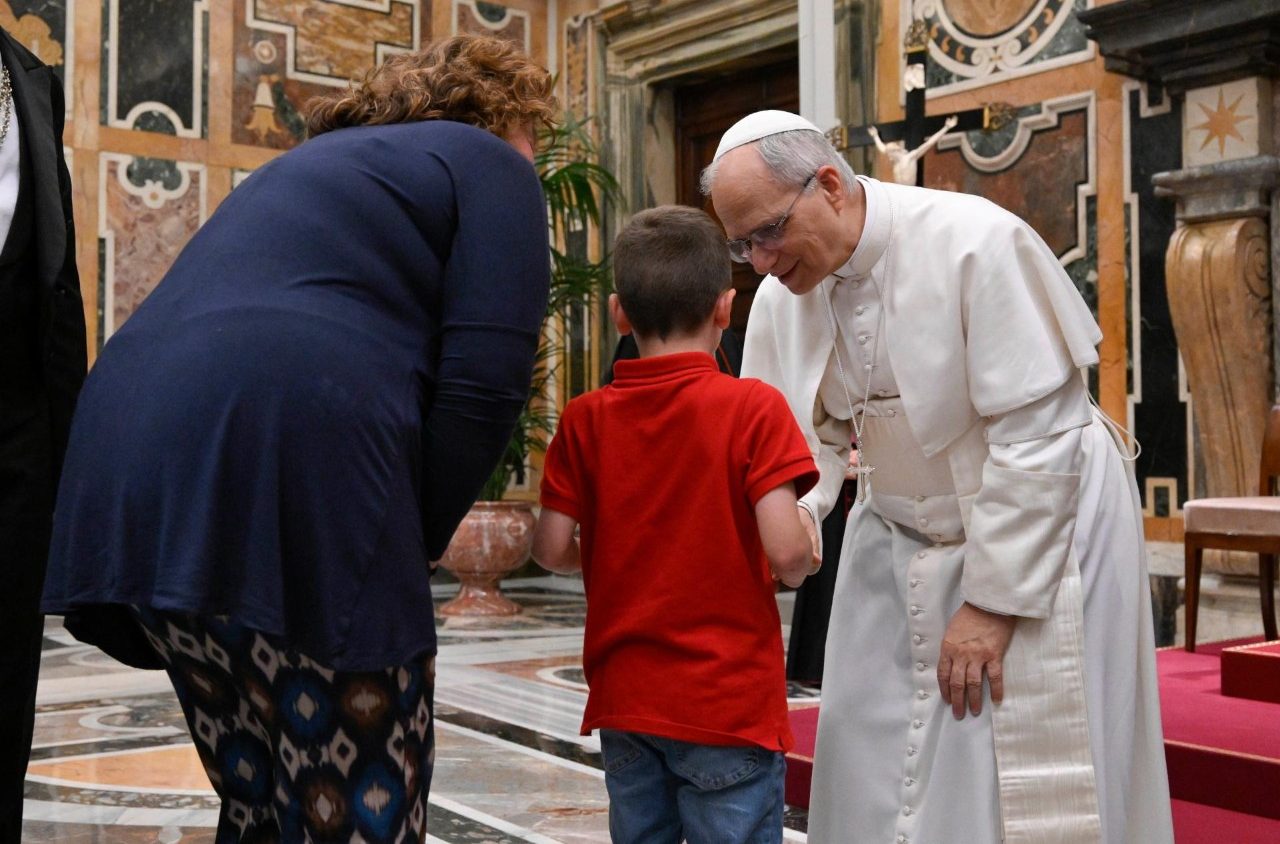🇮🇹 Versione italiana
Vatican City – On the occasion of the third centenary of the Bull In apostolicae dignitatis solio, by which Pope Benedict XIII approved the Institute of the Brothers of the Christian Schools, and the 75th anniversary of the proclamation of Saint John Baptist de La Salle as heavenly Patron of educators, Pope Leo XIV today received the religious in audience in the evocative setting of the Clementine Hall.
In his address, the Holy Father chose to emphasise two fundamental dimensions of the Lasallian charism: attentiveness to the present day, and the ministerial and missionary nature of teaching.
An education that interprets the signs of the times
Recalling the historical experience of the founder, Saint John Baptist de La Salle, Leo XIV praised the Brothers' ability to respond to the concrete needs of their time with creativity, a spirit of sacrifice, and a Christian vision. “The young people of our time, like those of every era, are a volcano of life, energy, feelings, and ideas,” the Pope declared. However, he warned, “they need help to ensure that such richness can flourish harmoniously and to overcome that which […] may still hinder healthy development.” The Pontiff spoke of today’s challenges in clear and impassioned terms: the isolation generated by superficial relationship models, individualism, emotional instability, and also “the spread of patterns of thought weakened by relativism” and the confusion caused by lifestyles that leave little room for listening, dialogue, and reflection. “Even today,” said Leo XIV, “we can, like Saint John Baptist de La Salle, turn the challenges of our age into springboards for exploring new paths.”
The teacher as minister within the community
With particular emphasis, the Pope then highlighted the vocational and ministerial dimension of teaching as lived according to the Lasallian charism. Quoting the motto “to evangelise through education and to educate through evangelisation,” Leo XIV reminded those present that the classroom is the altar of the Brother-teacher. This statement reveals the importance of the educational mission, viewed not merely as an act of charity or service to society, but as true consecration within the Church. “The charism of the school […] still today appears as one of the most beautiful and eloquent expressions of that priestly, prophetic and kingly office which we all received in Baptism,” he affirmed. While addressed primarily to the Brothers, this statement stands as a profound message for all Christian educators: the school as a place of mission, and teaching as an exercise of the baptismal vocation.

The Pope’s hope: more Lasallian vocations
Finally, the Pontiff turned his gaze to the future, expressing hope for a renewed blossoming of vocations: “I hope that vocations to Lasallian religious consecration may grow, that they may be encouraged and promoted, within your schools and beyond.” A blessing and an exhortation, so that educational communities may also become fertile ground for journeys of youthful holiness.
Who are the Brothers of the Christian Schools?
Founded by Saint John Baptist de La Salle (1651–1719), the congregation of the Brothers of the Christian Schools is one of the most renowned and influential religious institutes in the history of Christian education. Ordained a priest in Reims after studies at Saint-Sulpice and the Sorbonne, De La Salle dedicated himself with passion to the instruction of poor boys. A turning point came with his encounter with Adrian Nyel, a benefactor engaged in opening free schools. In 1679, De La Salle opened the first free school in Reims. In 1680, he began forming a community of lay teachers, living in common, devoted exclusively to teaching and without enclosure. The congregation expanded rapidly throughout France, with schools opened in Paris (1688), and later in Italy, Belgium, Switzerland, and even overseas territories such as Martinique. The Brothers, dressed in their distinctive black cassocks and white neckbands, were popularly known as the “brothers with four arms” due to the peculiar cut of their mantles. At times, they were derided as “little ignorants” for rejecting both Latin and the priesthood, yet their educational work soon became a model and inspiration throughout the Catholic world. De La Salle was beatified by Leo XIII, to whom Prevost is particularly devoted, in 1888, and canonised in 1900. In 1950, Pope Pius XII proclaimed him Patron of all Christian educators.
A living legacy
With these words, Pope Leo XIV sought to reaffirm the vitality and relevance of the Lasallian educational tradition—not as a museum piece, but as a living force to confront today’s challenges, with hearts set on holiness and the good of young people. A mission which, now more than ever, calls upon the entire Church and all those who believe in the transformative power of Christian education.
s.C.R.
Silere non possum